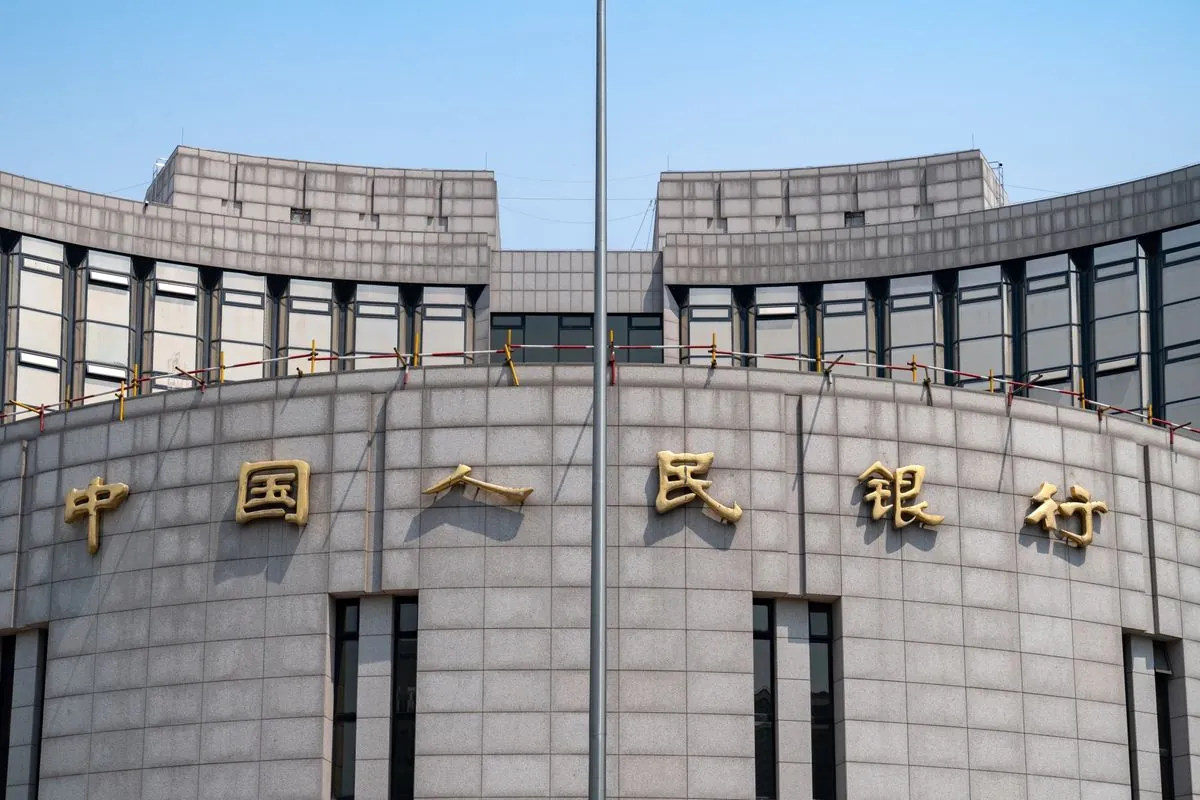China's bond market, the world's second-largest after the United States, is experiencing a complex interplay of growth aspirations and speculative pressures. As Beijing aims to bolster its $17 trillion economy through increased direct financing, the People's Bank of China (PBOC) finds itself in a challenging position.
The Chinese government has long expressed a desire to expand direct financing options, including bonds and stocks. In 2023, these instruments accounted for only 31% of total social financing, significantly lower than the United States' 70%. This disparity highlights the potential for growth in China's bond market, which has already surpassed Japan's in size since 2016.
However, the path to market development is not without obstacles. The PBOC, established on December 1, 1948, has been grappling with bond market speculation throughout 2024. In early July, the central bank issued a statement indicating its readiness to short-sell long-term securities, temporarily cooling the bond frenzy. Yet, investors quickly resumed pouring money into government bonds following a surprise rate cut in late July.
This speculative behavior complicates the PBOC's efforts to maintain a strong yuan and preserve monetary policy flexibility. The situation is particularly challenging given China's already high debt-to-GDP ratio, which reached 295% in 2020.
In response to these challenges, Chinese regulators have taken decisive action. On August 9, 2024, authorities announced an investigation into four rural commercial banks suspected of bond market manipulation. Additionally, the securities regulator has ordered certain brokerages to inspect their bond trading activities.
These regulatory measures align with the PBOC's recent statement in its second-quarter monetary policy implementation report. The central bank expressed its intention to "enrich" its monetary policy toolbox and gradually increase buying and selling of treasury bonds in open market operations.
The bond market's reaction to these developments was swift. On August 12, 2024, China's 10-year treasury futures experienced their worst day in 17 months, dropping 0.6%.
As China navigates these complex market dynamics, it's worth noting that the country's bond market has made significant strides in recent years. The introduction of the Bond Connect program in 2017 has facilitated easier access for foreign investors, who now hold about 3% of China's bond market. Moreover, China has emerged as a leader in green bonds, boasting the second-largest market globally after the United States.
The current situation presents a delicate balancing act for Chinese policymakers. While the rush for government bonds aligns with Beijing's long-term agenda of market development, it also poses risks to economic stability and monetary policy effectiveness. The success of recent regulatory actions in curbing speculation remains to be seen, as does their impact on China's broader economic goals.
As the situation unfolds, market participants and policymakers alike will be closely watching the interplay between China's bond market development, regulatory measures, and broader economic objectives. The outcome of this complex dynamic will likely have far-reaching implications for China's financial system and its role in the global economy.
